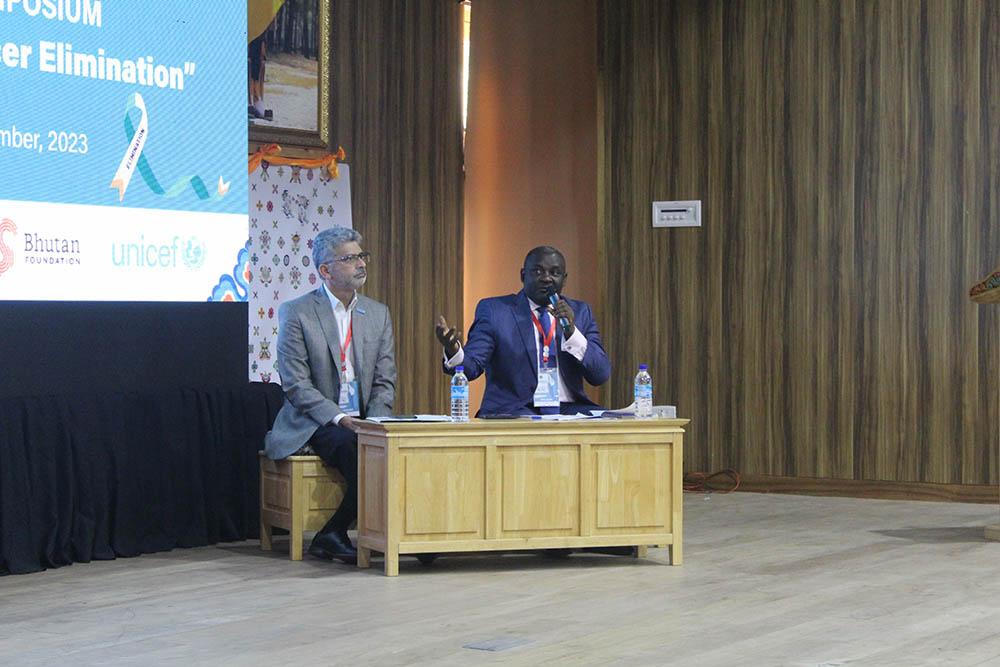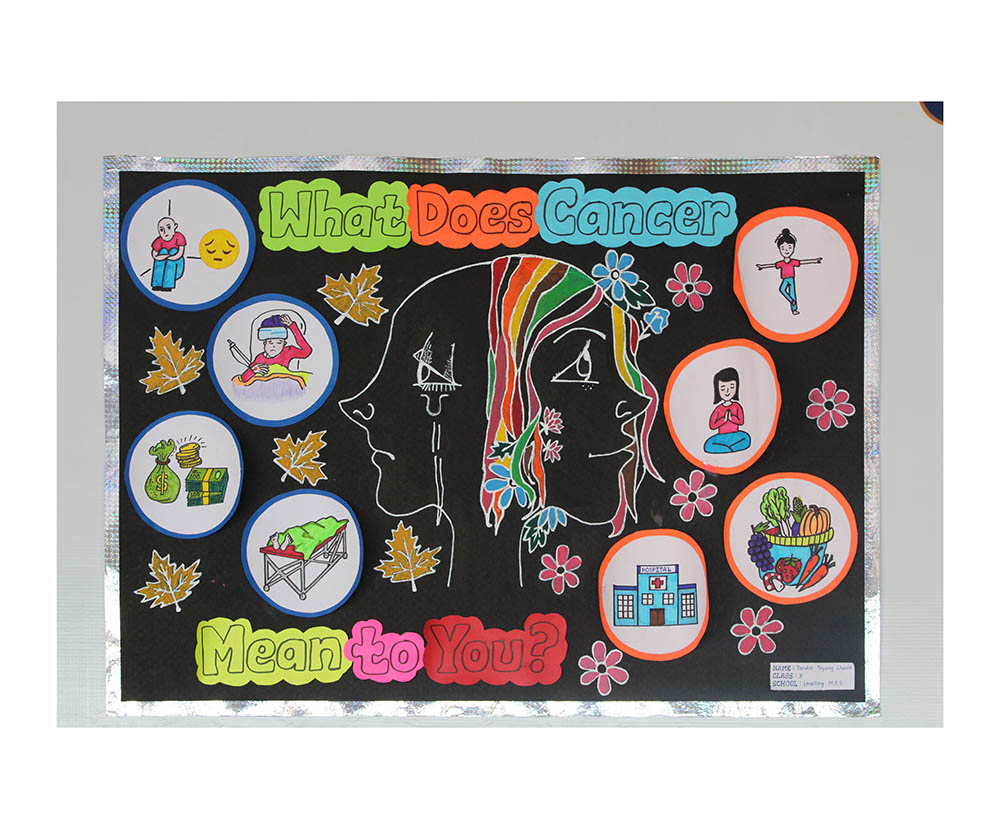Jigmi Wangdi
Bhutan’s ambition to eradicate cervical cancer in women by 2030 draws closer to realisation, with over 90 percent of HPV vaccinations administered to both girls and boys.
Bhutan committed to this cause in January 2019 during the 144th WHO Executive Board meeting. Since then, Bhutan has achieved significant milestones.
Currently, more than 90 percent of women have undergone HPV DNA screening through the Health Flagship Programme.
The Ministry of Health hosted the International Cancer Symposium, which primarily centered on the elimination of cervical cancer.
Dr Bhupinder Kaur Aulakh, from the WHO Bhutan Country Office, shared alarming statistics during the sessions, noting that in 2020, the global estimate saw 190,874 new cases and 116,015 deaths attributed to cervical cancer.
She emphasised the preventability of cervical cancer through HPV vaccination, as well as the availability of screening and treatment for cervical pre-cancer. Early detection and prompt treatment of invasive cervical cancer, she added, yield high survival rates, making early intervention crucial.
WHO’s strategy to eliminate cervical cancer includes achieving 90 percent HPV vaccination coverage for girls under 15, screening 70 percent of women by age 35 and again by age 45, and ensuring 90 percent of women diagnosed with cervical disease receive treatment.
Dr Aulakh highlighted the need for countries to expand facilities for single-visit screening and treatment, enhance access to cervical cancer diagnosis and treatment, establish integrated networks of lab services, and implement robust quality assurance programmes.

Left to right: Dr Azhar Abid Raza and Dr Emmanuel NjambeTondo Opute during the panel discussion
She affirmed WHO’s full support for Bhutan’s efforts to eliminate cervical cancer.
Dr Azhar Abid Raza, another panelist, urged Bhutan to identify the population segment constituting the remaining 10 percent, considering that the country is a regional leader in gender equality.
He stressed the importance of not leaving any girl or community behind, as community well-being is intertwined with the healthcare system.
Dr Emmanuel Njambe Tondo Opute from WHO SEARO provided a global perspective, highlighting real-world evidence of cervical cancer prevention through vaccination 15 years after its introduction.
He also discussed updated WHO recommendations on HPV vaccine schedules, emphasising girls aged nine to 14 as the primary target, with secondary targets including boys, females, and older males above 15.
Dr Opute recommended a strategy that ensures maximum population protection among girls by age 15 and offers multiple opportunities for vaccine doses, including catch-up vaccinations for girls up to 18.
The International Cancer Symposium convened experts, healthcare professionals, policymakers, researchers, and others to foster dialogue on cervical cancer issues and, most importantly, to explore collaborative efforts for its elimination.


